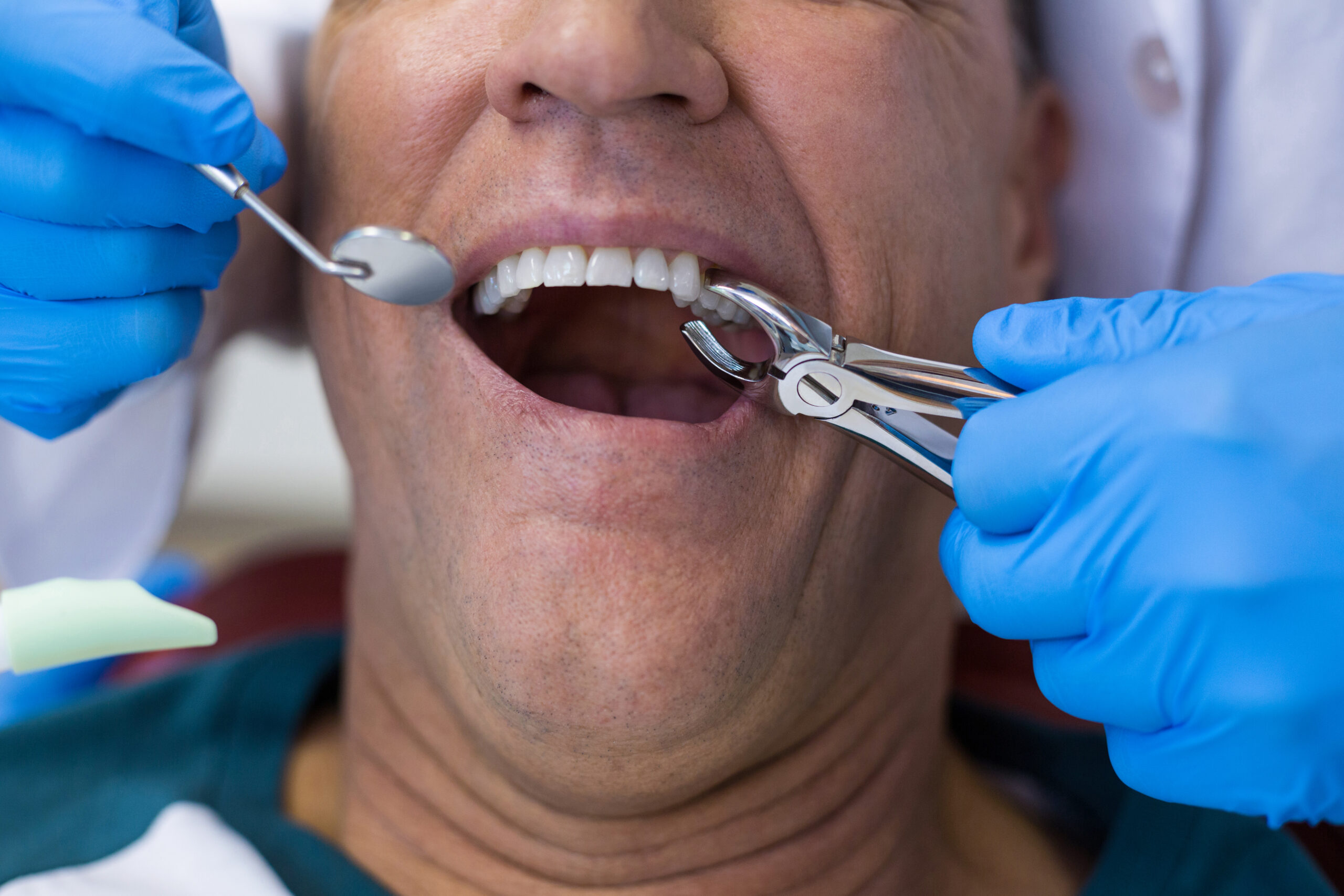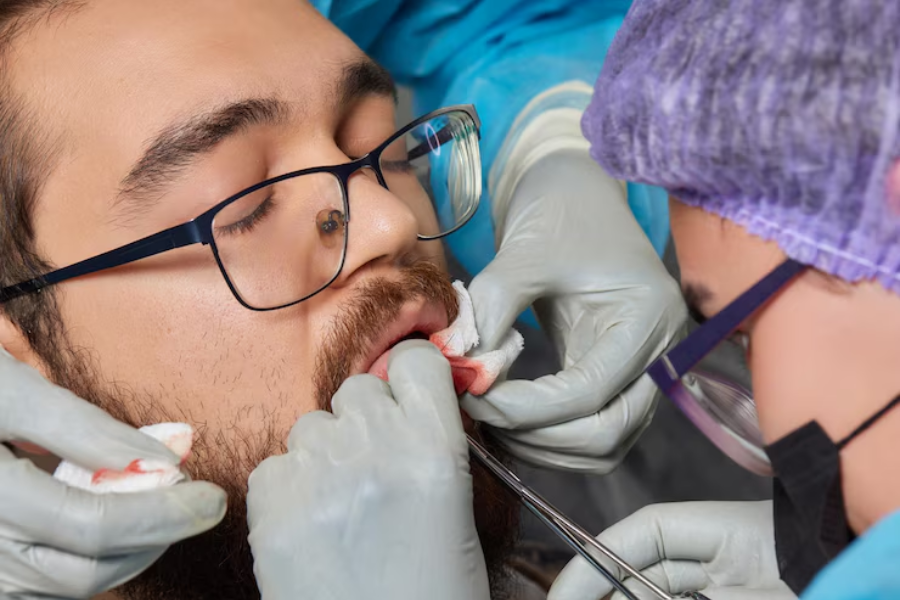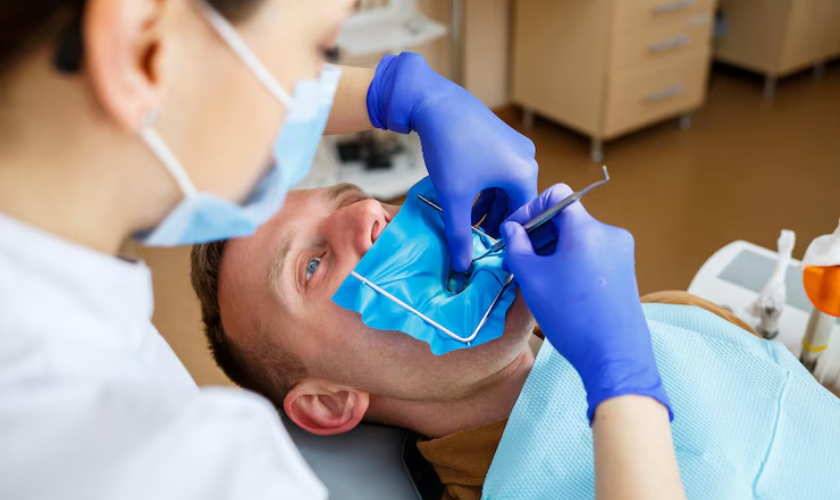We are not a registered Medicare/Medicaid Provider
What Foods Should You Avoid After Tooth Extraction?

After undergoing a tooth extraction, your mouth will be sensitive and vulnerable. To ensure a smooth and speedy recovery, it is crucial to be mindful of your diet. Consuming the wrong types of food can lead to complications such as delayed healing, infection, or even the painful condition known as dry socket. In this comprehensive guide, we will delve into the types of foods you should avoid following tooth extraction and provide helpful suggestions for safe, nutritious alternatives.
Understanding the Healing Process
Before diving into specific foods, it’s important to understand the healing process that follows a tooth extraction. Initially, a blood clot forms in the extraction site, which is crucial for healing. Dislodging this clot can lead to complications. The first 24 to 48 hours are particularly critical. During this time, your diet should be especially gentle, consisting primarily of soft foods and liquids.
Foods to Avoid After Tooth Extraction
Here’s a detailed list of foods to steer clear of after having a tooth extracted:
- Crunchy and Hard Foods: Avoid nuts, chips, hard bread, and popcorn. These can not only dislodge the blood clot but can also irritate the extraction site if small pieces get stuck.
- Sticky and Chewy Foods: Gummy candies, caramel, and chewing gum can be particularly harmful as they have the potential to pull on the clot.
- Spicy Foods: Spicy dishes can irritate the wound, leading to discomfort and slowing down the healing process.
- Very Hot Foods and Beverages: Hot soups, coffee, or tea can increase the risk of dissolving the blood clot that is essential for healing.
- Alcoholic Beverages: Alcohol can interfere with the healing process. It’s best to avoid alcoholic drinks for at least 24 to 48 hours after your extraction.
- Acidic Foods and Beverages: Citrus fruits and juices, tomatoes, and sodas can aggravate the extraction site, leading to pain and potential complications.
Why These Foods Are Problematic
Risk of Infection: Foods that are hard, sticky, or contain small, hard particles can lodge into the extraction site, leading to infection.
Irritation and Discomfort: Spicy and acidic foods can cause significant discomfort by irritating the sensitive tissues at the extraction site.
Dislodging the Blood Clot: Crunchy, hard, and chewy foods pose a risk of dislodging the blood clot, which is a key component in the healing process. Losing this clot can lead to dry socket, a painful condition that requires additional dental treatment.
Safe and Nutritious Alternatives
To support your recovery, focus on consuming soft, nutrient-rich foods that are gentle on your extraction site:
- Soups and Broths: Warm (not hot) broth-based soups with soft vegetables or pureed soups are excellent as they are easy to consume and hydrating.
- Smoothies: Packed with vitamins, smoothies can be a nutritious and gentle way to nourish yourself. Avoid adding seeds or nuts, and do not use a straw as the suction can dislodge the blood clot.
- Mashed Potatoes: Soft, comforting, and versatile, mashed potatoes can be a good source of energy during your recovery.
- Scrambled Eggs: Easy to chew and high in protein, scrambled eggs are an ideal post-extraction meal.
- Greek Yogurt: High in protein and smooth in texture, Greek yogurt can help in your recovery without irritating the extraction site.
- Applesauce: A source of vitamin C and fiber that doesn’t require chewing, making it perfect for post-extraction nutrition.
- Cottage Cheese: Soft, creamy, and high in protein, cottage cheese is another excellent choice for those recovering from a tooth extraction.
Tips for a Smooth Recovery
- Keep Hydrated: Drink plenty of water to stay hydrated. Avoid using a straw, as the suction can disrupt the formation of the clot.
- Follow Your Dentist’s Advice: Adhere to any specific dietary recommendations or restrictions your dentist or oral surgeon provides.
- Maintain Oral Hygiene: Keeping your mouth clean is crucial. Gently rinse with salt water or a prescribed oral rinse to help keep the extraction site clean without irritating it.
Recovering from a tooth extraction requires careful attention to your diet. By avoiding hard, crunchy, spicy, hot, sticky, and acidic foods, you can help ensure a smooth healing process and avoid complications. Instead, focus on consuming soft, nutritious foods that provide the energy and nutrients needed for recovery. Listen to your body, follow your dentist’s advice, and take it easy as you heal. By being mindful of what you eat, you can help ensure a quicker, more comfortable recovery period.


